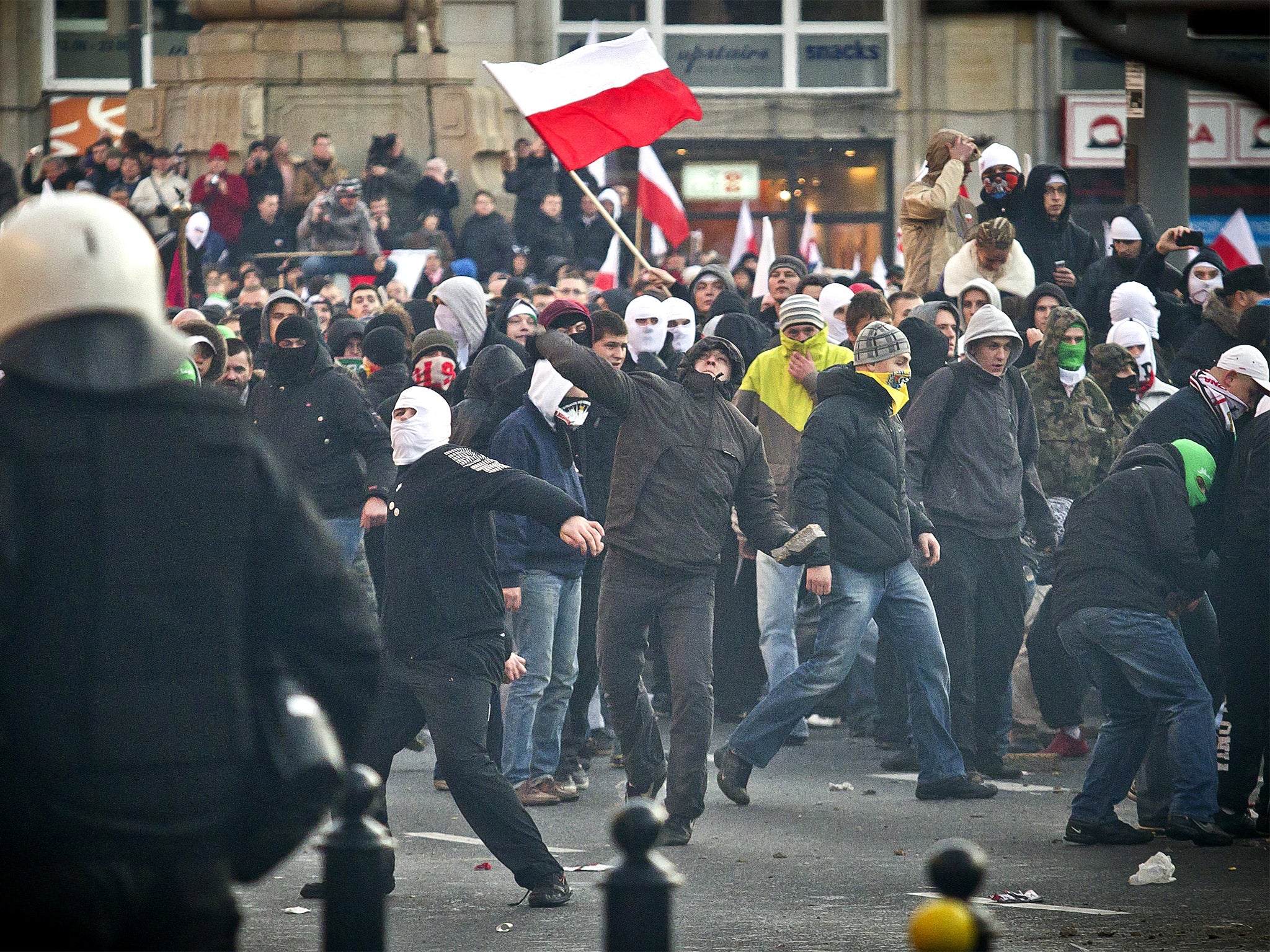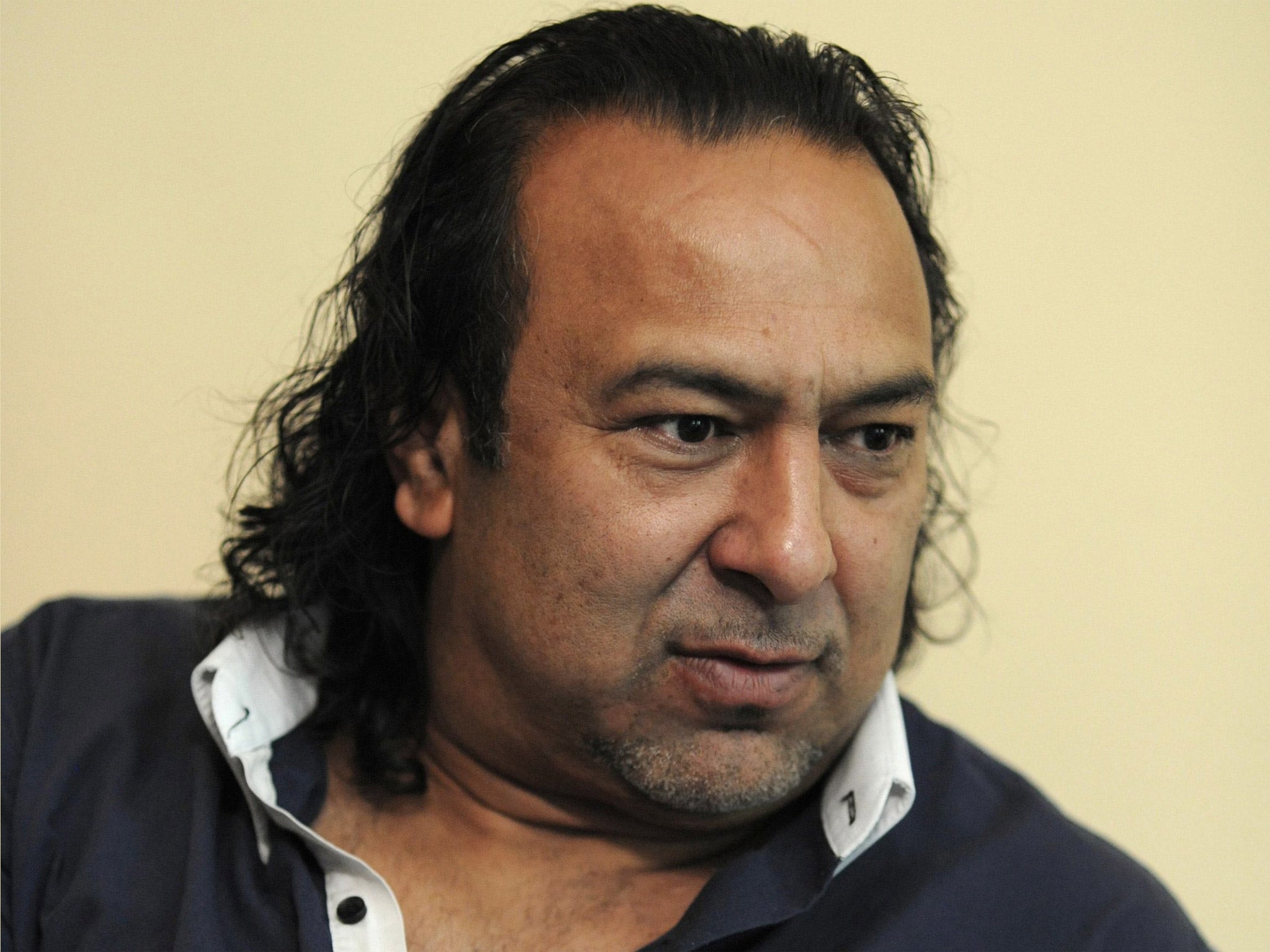Polish far-right groups stir up anti-Roma hatred in the shadow of Auschwitz
Minority blamed for crime and social grievances at rallies where local youths are recruited into vigilante patrols

Your support helps us to tell the story
From reproductive rights to climate change to Big Tech, The Independent is on the ground when the story is developing. Whether it's investigating the financials of Elon Musk's pro-Trump PAC or producing our latest documentary, 'The A Word', which shines a light on the American women fighting for reproductive rights, we know how important it is to parse out the facts from the messaging.
At such a critical moment in US history, we need reporters on the ground. Your donation allows us to keep sending journalists to speak to both sides of the story.
The Independent is trusted by Americans across the entire political spectrum. And unlike many other quality news outlets, we choose not to lock Americans out of our reporting and analysis with paywalls. We believe quality journalism should be available to everyone, paid for by those who can afford it.
Your support makes all the difference.Less than 20 miles from Auschwitz, where once they shouted “Jews out”, football fans chant “Gypsies out”.
The small Roma community of Andrychow is living in fear since Polish far-right groups began a campaign of harassment against them.
The campaign began with a rally last month where the chant “Cyganies raus” (Gypsies or Roma out) was heard and has continued with social media and intimidation.
Roman Kwiatkowski, head of the Association of Roma in Poland, said Andrychow is the first case he has seen of an organised anti-Roma campaign in the country. “It is very dangerous,” he said. “It does not allow us to look to the future with confidence.”
Roma residents say they are living in fear.
Human rights campaigners believe the situation is being exacerbated by activists from outside the town who are being advised by the Jobbik party in Hungary on how to emulate their success.
Tamas Fodor, a Jobbik activist who was in Warsaw this month for meetings with like-minded Poles, denied his movement was giving recommendations to anyone in Poland.
“But if they see something that worked in Hungary, they can use it,” he said.
The football fans were shouting at a rally organised by Robert Winnicki, a far-right leader from Warsaw who said all the 100 or so ethnic Roma living in a town of 20,000 people should be driven out.
Jobbik’s tactic has been to hold rallies blaming Roma for crime and social grievances. They then recruit local youths into vigilante patrols, with the stated aim of protecting citizens from the Roma.

In Andrychow last month, a pregnant Roma woman was attacked as she walked in the street. Soon after, two young ethnic Poles were beaten up in what many residents assumed was a Roma revenge attack.
Anger erupted. Supporters of the local football club, Beskid Andrychow, set up a page on Facebook. It published accounts of what it said were violent attacks by Roma, and photographs of ethnic Poles it said had been beaten up. The page has now been “liked” by 14,182 people. One post read: “We’re not going to sit quietly and pretend that everything is OK. We are shouting long and loud: enough of Gypsy impunity!”
The Roma community said the patrols by football fans were still going on at weekends. They now only go out at night to get essentials from the shops, and then, never alone. One man, Rafal Strauss, said the community had started keeping their children home from school. Two Roma woman said they had heard that ethnic Poles in at least local two apartment blocks had submitted petitions to the city authorities asking that Roma neighbours be moved out – an assertion that could not be verified.
Another Roma man, Mieczyslaw Pankowski, said he was now too scared to take his seven-year-old disabled daughter for treatment in a nearby town and the family lived in fear of attacks at night: “We take it in turns to keep watch,” he said. “We’re frightened to go to sleep in case someone throws a bottle through the window.”
Party officials from Jobbik and Ruch Narodowy – an umbrella organisation for far-right groups – said that the events in Andrychow were a spontaneous, grassroots upsurge of anger. The politicians were only there to help, they said.
But they acknowledge that the example of how Jobbik grew on the back of anti-Roma sentiment may have been an influence. “I think that the organisers may have viewed certain successes in Hungary as an inspiration,” said Winnicki.
Events in Andrychow indicate that Jobbik – snubbed even by many west European far-right parties as anti-Semitic and racist – is spreading its ideology beyond Hungary’s borders, in this case to Poland – by far the biggest and most influential ex-Soviet bloc state in the European Union.
Reuters